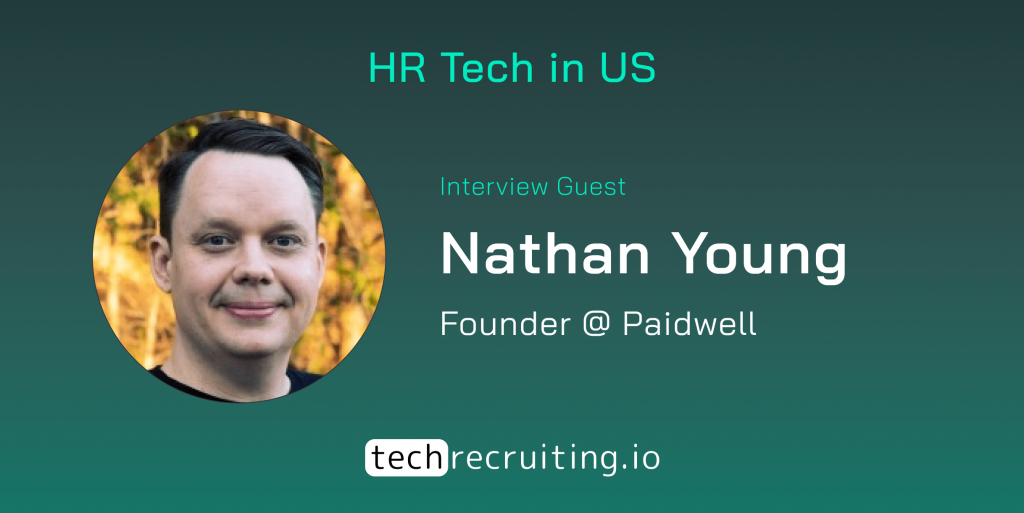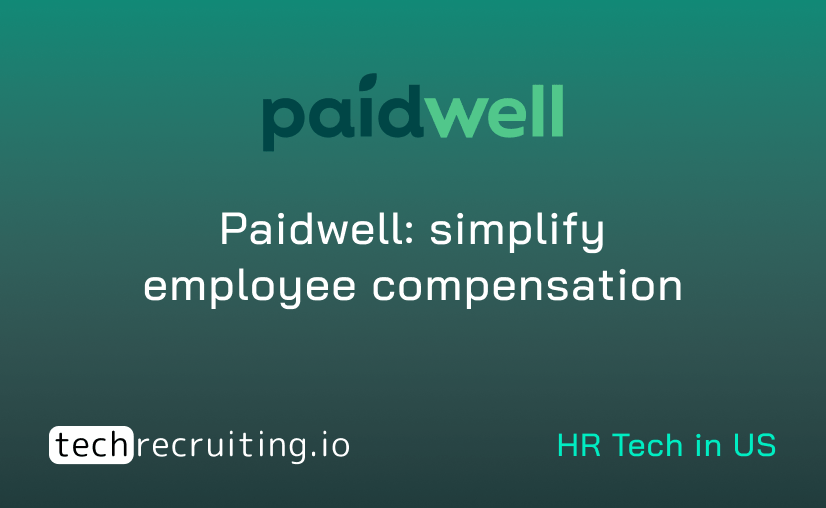In our category “HR Tech in US” we present HR tech companies from the USA and what the European HR world can learn from them.
In this interview, I spoke with Nathan Young. He is Founder of Paidwell, a company that simplifies employee compensation.
Nathan, you founded Paidwell, a company that aims to simplify employee compensation. How does your approach work? And why is it better than other solutions?
Our goal right now is to build the most equitable pay-for-performance compensation tools on the market. We focus on three elements to help our customers succeed – consulting to understand their needs and to design custom compensation programs that fit their needs, coaching to help our customers learn to manage compensation according to their own philosophy, and then we provide our proprietary compensation software to help them stay on track.
We don’t focus on building something better for everyone – we focus on building something better for our tribe – companies that want to make decisions based on data and focus on doing things right, not just right now.
How important is employee compensation in the pay package?
Our philosophy is that pay is 1/3 of the equation in the employer/employee value proposition. It’s critical, but it’s insufficient by itself. We believe that the culture and lifestyle of a business make up a third of the value for employees, with career development being the final third.
Do you see any differences between the U.S. and, say, the European market in terms of employee compensation?
Yes. And there are variations by country, as well. Overall, the US is one of the best, if not the best, compensation market for tech talent in the world. However, different regions and countries have different approaches to compensation, as well as overall rewards (compensation, benefits, development, and other pieces). In some areas it’s common to get bonuses, others equity — some offer base, bonus, and equity. Some regions have lower salaries with better healthcare and retirement, others emphasize higher direct cash compensation.
What can companies do better in terms of employee compensation? How should they position themselves in this area?
I think the best advice I’d give here is to think about for what you’re solving and be intentional in how compensation is delivered to employees. We see a lot of companies being very reactive to the market or to whomever is asking for things right now. Instead, we recommend developing your own philosophy, know your target talent market, and then to build a talent strategy with a compensation component that is designed to attract/retain that key talent. You can never catch the market — it’s better to build something fantastic and then let the market catch up to you.
How do you think technology can help in HR in the future?
I think technology is the future of HR. There are so many decisions and processes in HR that are people-dependent. We have to remember specific details and conversations, data points from multiple systems (if they’re in a system at all), and organizations are made up of individual people with their own unique backgrounds, needs, and opinions. Ultimately, employees are customers too — we should know as much about our own teams as we do about our customers. I think HR will be similar to other functions like finance and marketing, where even small companies will use advanced systems to effectively manage their people operations.
Nathan, thank you for the interview and your insights.

